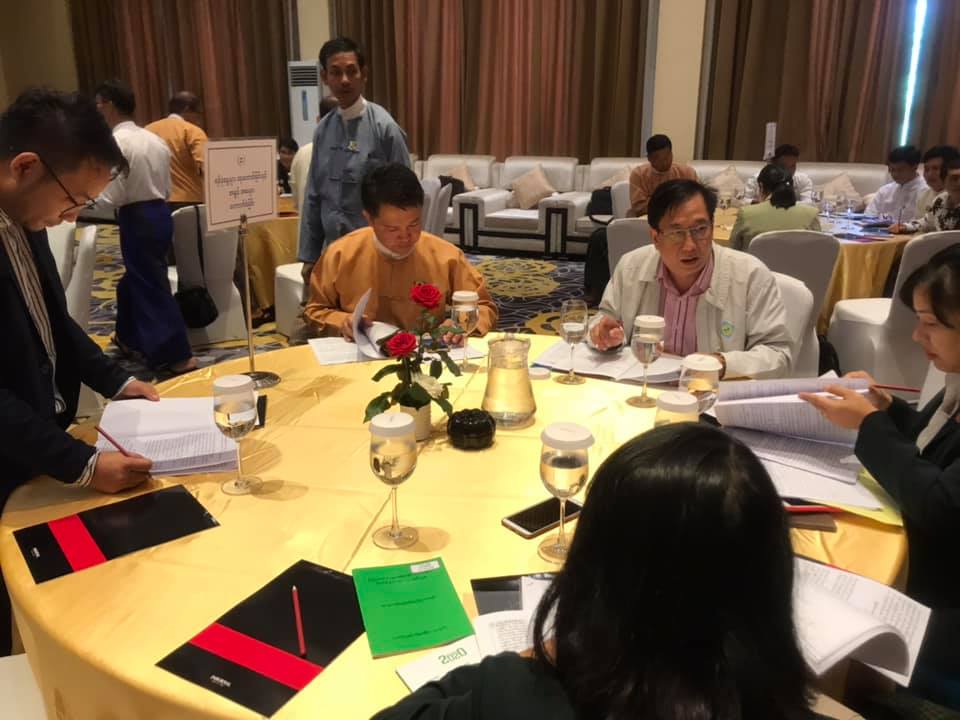Natural Resources Governance
Introduction to Myanmar Resources
Myanmar is one of the most resource rich nations in South East Asia (if not the most) and also suffers from a poor legal system and endemic corruption as a result of the previous junta government. In fact, the 2013 Resource Governance Index Report found it to have a score of 4/100 and sitting 58/58 of countries examined. It is sometimes referred to as the biggest natural resource heist of the 20th Century and that is not without merit. Forestry Ministry data showed that by 2010, forest cover had shrunk to 47 percent of land area from 58 percent in 1990, it was over 65% early in the 20th Century. Burmese wood once (and still does) carry reputation as incredibly good quality and developed a brand all unto itself. Teak (Tectona grandis), better known as “Burmese Teak” and Pyinkado (Xylia xylocarpa) used to be major species both for export and domestic use. However, under the guise of conservation, in April 2014, Myanmar banned export of raw timber logs to slow deforestation and boost its own production.
Myanmar has precious gemstones such as gold, diamond, jade, ruby, sapphire, amber, minerals such as tungsten, tin, zinc, silver, copper, lead, antimony and other industrial minerals and also rich in oil and gas. It is however, hard to quantify the amount resources that have been mined and it is only now as sanctions get lifted that more international companies come in and apply for exploration licenses that we will get a fair idea of how much is actually under the ground. All previous reporting has been fraught with mismanagement and falsification. Indeed, US State Department in 2010 estimated $8.1 billion dollars in overall export value across all industries (32% natural gas, 10% precious stones and an astonishing 36.5% unaccounted for). In the Global Witness expose released in October 2015, “Jade: Myanmar’s Big State Secret” it proposed that while jade production in 2014 alone was well reported to be over US$12 billion indicated by Chinese import data, and appears likely to have been as much as US$31 billion.
According to CIA World Factbook, Myanmar has 50 million barrels of Crude Oil and 283 billion cubic metres of natural gas reserves. In terms of precious stones it is largely unexplored and we need to wait for the estimates from companies who have been issued exploratory licenses. According to the Department of Geological Survey and Mineral Exploration (DGSE), there are more than 2000 occurrences of 62 different commodities. We just hope that as the EITI regains momentum, the benefactors of the extraction projects will not just be big business.
Transparency and Corruption
Natural resource governance and transparency issues are both intertwined. Illegal or clandestine logging or mining operations are able to strip an area of its resources without paying tax or reparations to the rightful owners. The Forest and Agricultural Department of the United Nations released the Global Forest Resources Assessment 2010. Myanmar has been gradually improving its governance and undoing the military regime’s culture upon the government of secrecy and corruption. Transparency International’s latest Corruption Perception Index has revealed a ranking of 147/168 and score of 22/100. It’s an improvement but it’s not enough.
Source: Transparency International (2016).
Corruption was (and still is) endemic to this wonderful country. Corruption in Myanmar ranges from the implicit paying of “tea money” to public officials for services to the registering of false companies in order to gain licenses to mine. The Anti-Corruption Resources Centre found that Bureaucratic Corruption and Cronyism were rife in during the military junta in their overview of corruption in Burma. The Global Witness report, “Jade: Myanmar’s Big State Secret” released in 2015 has exposed in great detail the registering of anonymous companies to cover up true ownership. Myanmar became an Extraction Industries Transparency Initiative (EITI) candidate in 2013, releasing their latest report early in 2016. The EITI is an important initiative that MATA is working with other stakeholders to ensure that the all voices are heard.

Advocating Laws and Regulations
MATA have done laws, regulations and policies consultation, awareness raising and advocating to the law makers relating to the extractive industries. For instance, MATA have conducted meetings and workshops for the Mining laws amendment, participating in the Gems stone policy development committee and raising concern on the recent VFV land law.
FLEGT
FLEGT stands for Forest Law Enforcement, Governance and Trade. The EU’s FLEGT Action Plan was established in 2003. It aims to reduce illegal logging by strengthening sustainable and legal forest management, improving governance and promoting trade in legally produced timber.
